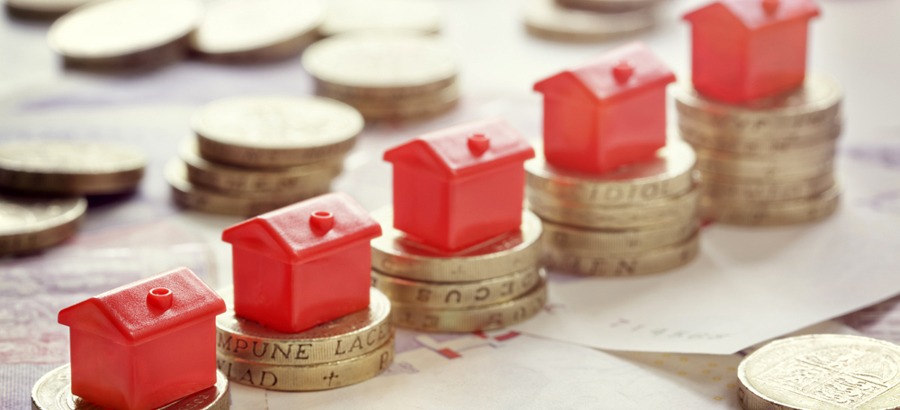The UK property market has already demonstrated its resilience during months of Brexit negotiations and the recent General Election. Despite investor concerns, in the year following the Brexit vote, UK property prices increased significantly and by 4.5% year on year from October 2016. Following the election of Boris Johnson as Prime Minister in December last year, UK house price growth continued its upward trend with house prices in January up 1.9% year on year, marking the largest increase in 14 months.
House Price Growth
But the arrival of the Coronavirus has thrown the investments question into the spotlight all over again. The Coronavirus (or Covid-19) began in Wuhan, China with the first case traced back to November 2019 but it wasn’t until a few weeks later that the emergence of this new virus hit headlines, and it didn’t reach the UK until the end of January. Since then, things have escalated fast with the virus declared a pandemic in mid-March and the UK seeing stringent social distancing, isolation and quarantine measures implemented.
Against this backdrop, it would be impossible for the finance markets to remain unaffected and the global stock market dipped fast in mid-March. This has seen investors turn away from stocks and shares, and towards alternative ways to invest their money in order to best ride out these turbulent times. So the key question remains – is property still a good investment?
A Frozen Market
As things stand with the UK on lockdown, the property market has been forced to freeze in position. House viewings cannot take place due to strict stay-at-home rules and the government has recommended that house moves are delayed as far as possible.
But safeguards and financial protection are already being put in place to soften the economic blow. UK Finance have confirmed that, to support customers who have already exchanged contracts for house purchases and set dates for completion, all mortgage lenders are working to find ways to enable customers who have exchanged contracts to extend their mortgage offer for up to 3 months to enable them to move at a later date. UK banks have also introduced ‘mortgage holidays’ for those who are struggling to pay their mortgage.
Economic Recovery
So in order to work out whether property investment still makes sense, we need to look at the potential post-Coronavirus scenarios. Experts anticipate that the property market will only be impacted in the short-term with Savills anticipating a 5 to 10 per cent short-term fall in house prices, and a 3 per cent fall over the year.
Any figures higher than this should be deemed excessive as the key dynamics of our property sector are strong and the pandemic has hit when the market is relatively steady with prices declining relative to inflation. This is in comparison to before previous crashes when things were far more fragile. Unlike the 2008 recession, mortgages are enjoying a healthier level of interest, which will ease the impact on property prices.
All signs point to a strong, V-shaped recovery as early as April 2021 – the property market is one of the strongest cogs in the economy machine and therefore remains a solid investment opportunity. There is likely to be a strong supply-demand balance post-Covid-19 due to pent-up demand, although we must account for those people who will change their mind about moving or will no longer be financially stable enough to do so.
A Tangible Asset
The Bank of England decision to cut mortgage rates will have further positive impact on the UK economy and is likely to fuel demand and push up house prices. The introduction of 2% stamp duty for overseas buyers of UK property comes into regulation in April 2021; this is again likely to boost the market.
It’s likely that interest rates will be capped for a prolonged period, prompting high levels of inflation that will ultimately reduce our debt and push demand for brick and mortar assets. Property remains one of the most solid examples of a tangible investment; when the location is chosen carefully, it also offers steady yield and low risk making for a strong investment especially during difficult economic periods. The future looks bright, too, with predictions that property prices will grow by an average of 15.3% in the UK by 2024 with growth of 24% in the North West.
There is no doubt it will take time for the economy and unemployment levels to return to normal. But it’s important for investors not to make incorrect assumptions that a shaken economy means that property no longer remains a viable place to invest. In fact, quite the opposite is true as property is a tangible asset and this type of investment always makes the most sense in times of economic uncertainty.
A Long Perspective
Investing in property today means playing the long game and it’s crucial for investors to recognise this. We must also factor in resilience of the market and long-term predictions where a combination of low rates and rising inflation is anticipated to push prices up.
This creates a whole host of lucrative investment opportunities, especially with regards to buy to let where typical tenant demographics such as students are likely to remain consistent. As it stands, almost every aspect of our normal lives is on hold and the current property freeze is just a part of it. There is still a shortage of low-cost housing in the UK meaning the supply-demand model is balanced in favour of the landlord and, by extension, the property investor.
Take a look at your investments with a long eye and grab the opportunities that property presents. Contact Alesco for more details regarding buy to let investment prospects.


